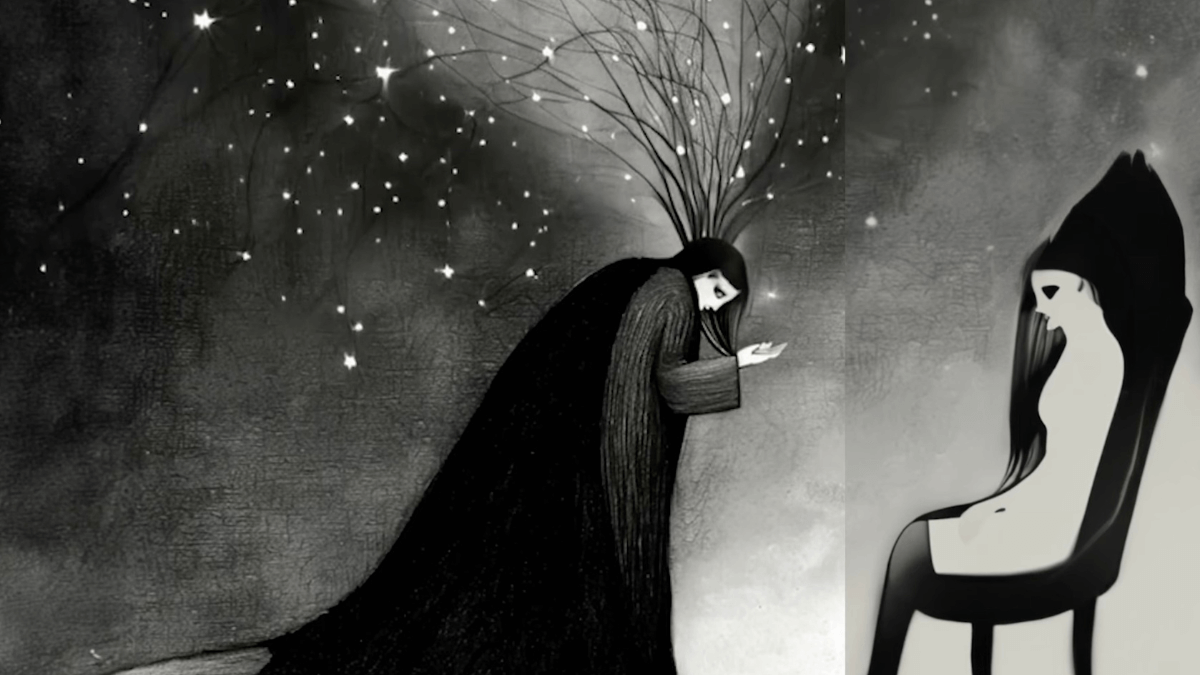The body’s experience is one of connection with the environment; it feels the environment in its entirety.
The body contracts—pain—as a way to communicate the feeling of being cut off. Where the cut occurs, the body cannot digest the information the contraction is occurring around. Furthermore, consciousness will issue a command that the body is to repel any incoming phenomena that does not match its perception of itself. Anything too intense, extreme, uncertain, or unfamiliar is constricted against.
Consciousness is then locked out of the slow steadiness of the body; it experiences a shock that registers as fear, or a problem to be fixed, and begins to race for a solution.
This misinterpretation leads to consciousness disconnecting from the source. Inside that source lies the very information that would tell us how to not only meet and respond to it, but also become intimate with and grow from the incoming stimuli. Untrained consciousness aims merely to protect us from the environment by either mastering or moving away from it. The body aims to develop wisdom and resilience through the incoming stimuli.

The challenge is that right when consciousness wants to escape—to go into the higher realms, to focus on something calming like the breath, to control the experience by fixing, make sense of things through judging and comparing, employing a “good” behavior to counteract the “bad” that is happening, focusing outside of oneself and body—the body has a different request. It only wants consciousness to remain with it throughout the entire process regardless of intensity, speed, or direction.
This process of connection is not a healing process, and it is not a growth process. It is the process we are meant to have in this life. It is the body’s imperative.
While the body cannot demand or control as the rational mind can, it has a deep knowing of a holistic way where both will benefit and get the liberation they seek. The difference is that when life is accessed through the body, it is not liberation from, it is liberation with.
This is what consciousness perceives as the ultimate cost.

It is not a matter of condescending to enter the body while reserving the right to direct and control it that is called for, but a full offering over of itself, with its gift of vision and executive functions in service to the wisdom of the body.
Not only will it “comply,” it will congratulate itself on how selfless it is in the process. It will continue to hold itself out, not understanding that surrender is the reward and not the punishment. It also doesn’t understand that the schemes of service do nothing for the body; if anything, they are an irritant and always off-key.
The mind will feel exhausted and even martyred in its attempts to conceal its lack of surrender through performative action. It will bristle at the demand of the body in accepting its one request.
Consciousness, trained to see control and protection as honorable, may perceive this shift in the order of things as defeat. The mind operates according to hierarchy and sees it as a boon that it is “on top” of the body.
The body does not operate according to this model; it seeks connection. For the body, both mind and body win when consciousness descends. It may not feel that way at first. Consciousness, accustomed to having dominion over its limited territory, is now aghast to discover that the environment of the body not only has its own language but, when experienced on its terms, is resilient, rich, dynamic, coherent, and immediate. This is despite the fact that consciousness has been trying to control it.
The body, as part of the environment, speaks the language of the present moment. It does not need to interpret and thus proves an effective guide in navigating experience.